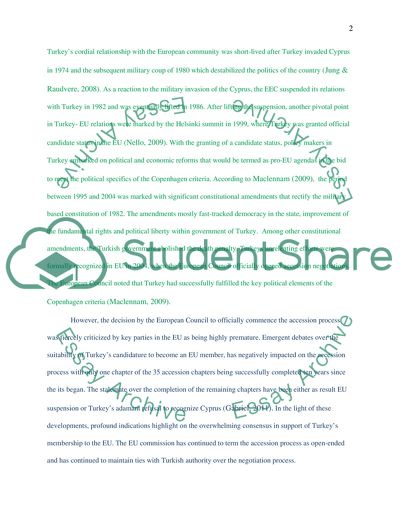Cite this document
(Turkeys Prospect of Becoming an EU Member Coursework Example | Topics and Well Written Essays - 5000 words, n.d.)
Turkeys Prospect of Becoming an EU Member Coursework Example | Topics and Well Written Essays - 5000 words. https://studentshare.org/politics/1858547-turkeys-eu-membership
Turkeys Prospect of Becoming an EU Member Coursework Example | Topics and Well Written Essays - 5000 words. https://studentshare.org/politics/1858547-turkeys-eu-membership
(Turkeys Prospect of Becoming an EU Member Coursework Example | Topics and Well Written Essays - 5000 Words)
Turkeys Prospect of Becoming an EU Member Coursework Example | Topics and Well Written Essays - 5000 Words. https://studentshare.org/politics/1858547-turkeys-eu-membership.
Turkeys Prospect of Becoming an EU Member Coursework Example | Topics and Well Written Essays - 5000 Words. https://studentshare.org/politics/1858547-turkeys-eu-membership.
“Turkeys Prospect of Becoming an EU Member Coursework Example | Topics and Well Written Essays - 5000 Words”. https://studentshare.org/politics/1858547-turkeys-eu-membership.


